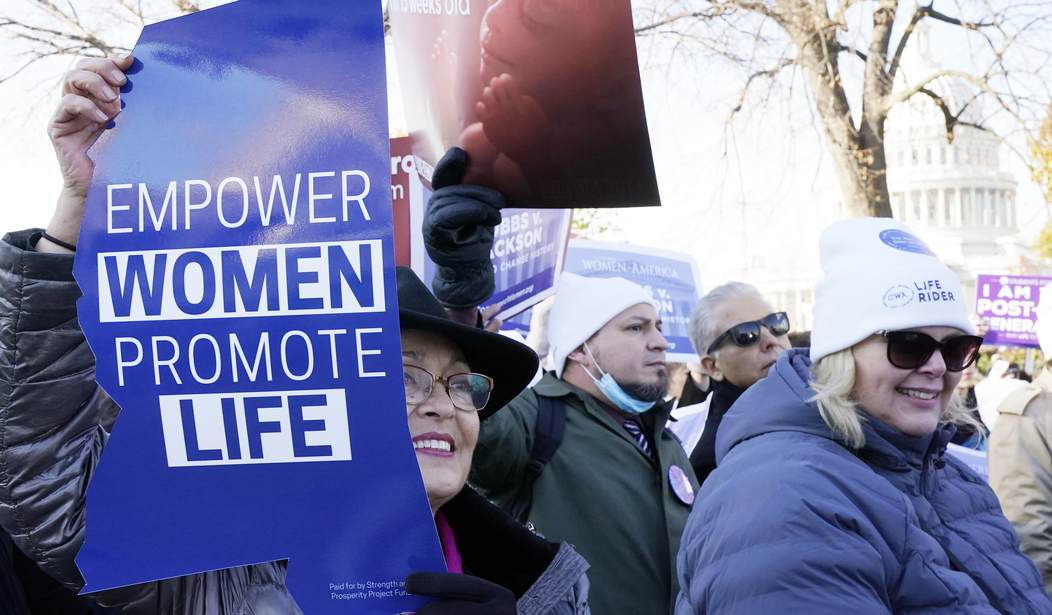COLUMBUS, OHIO -- "I'm not having this child." Kayla was a single mom already. Her relationship with the father of her first child had disintegrated. During the COVID shutdown, she stayed with her family in Tampa, Florida, where she grew up. She was in a developing relationship, and on Memorial Day morning, she discovered herself pregnant.
"My heart just fell to my stomach," she recalls in video testimony. She feared losing everything she had started to build. "I figured the chemical abortion would be the best option, less invasive."
She went to an abortion clinic in Florida. She took the first pill. That night she sat waiting to see what this would do to her body. The next morning, a gospel song on her clock radio woke her up. As she was about to hit snooze, she listened to the song, and, in her words, knew she had made a mistake. She prayed and begged for a miracle.
She quickly did some research and was amazed to discover that she, despite beginning the chemical abortion process, might yet have a chance of carrying her pregnancy to term. She called the hotline of the religious pregnancy support network Heartbeat International and was told she'd get help finding a doctor to help her. She recalls everyone in the room rejoiced when they finally got to see her baby's heart still pumping on a sonogram.
Kayla and her baby girl, Serenity, are the first photos I see on the walls in Heartbeat International's headquarters here in Ohio. (My tour guide, Heartbeat vice president Cindi Boston, reports that she recently saw Serenity running around happily and healthily on a playground with other children.)
Recommended
Heartbeat has 3,100 affiliated pregnancy-help organizations -- some of which are medical clinics, some which only provide sonograms and pregnancy tests with radiologists and nurses on staff, and some which provide resources for pregnant women and mothers (diapers, job skills, child care, housing). Most of the people working at Heartbeat have frontline pregnancy-center experience, and some have even run clinics themselves. Heartbeat reports that since 2003, over five million women have contacted its hotline looking for answers to unexpected pregnancies.
"There's a big abortion Goliath out there, and there's a little David pregnancy-help community that is making it happen without major subsidies," says Heartbeat's president, Jor-El Godsey. Godsey marvels at the rush there has been to support abortion at the federal level, but not to support parenting. Often pregnant women, single mothers and struggling families just need help getting over hurdles that seem insurmountable. Providing that help seems like something that those on both sides of the abortion debate could tackle together.
Kayla's daughter was named Serenity because the serenity prayer is the story of how Serenity came to be born. "God grant me the serenity to accept the thing that I cannot change, the courage to change the things I can and the wisdom to know the difference."
That's not a bad prayer for humility, whatever one's position on abortion. Maybe we don't have to pile on to the often-cruel politics of abortion in America -- the rhetoric of which often hurts more than it helps, especially when it comes to the many women who have already had abortions.
The callers to Heartbeat's hotline want help choosing life. That's an option we need to build more momentum around in post-Roe America.
(Kathryn Jean Lopez is senior fellow at the National Review Institute, editor-at-large of National Review magazine and author of the new book "A Year With the Mystics: Visionary Wisdom for Daily Living." She is also chair of Cardinal Dolan's pro-life commission in New York. She can be contacted at klopez@nationalreview.com.)

























Join the conversation as a VIP Member